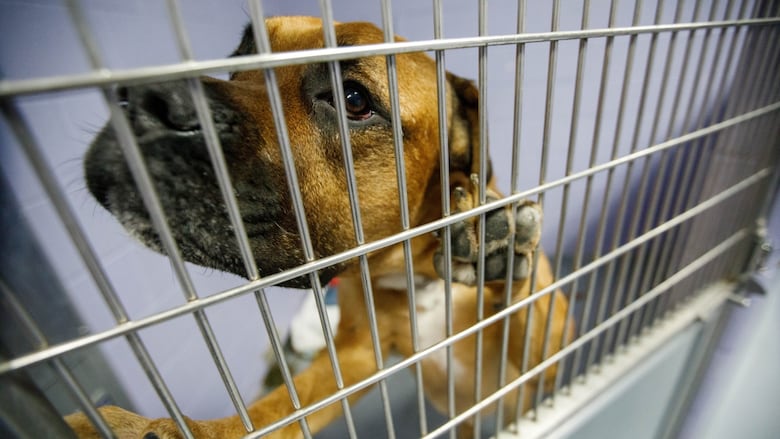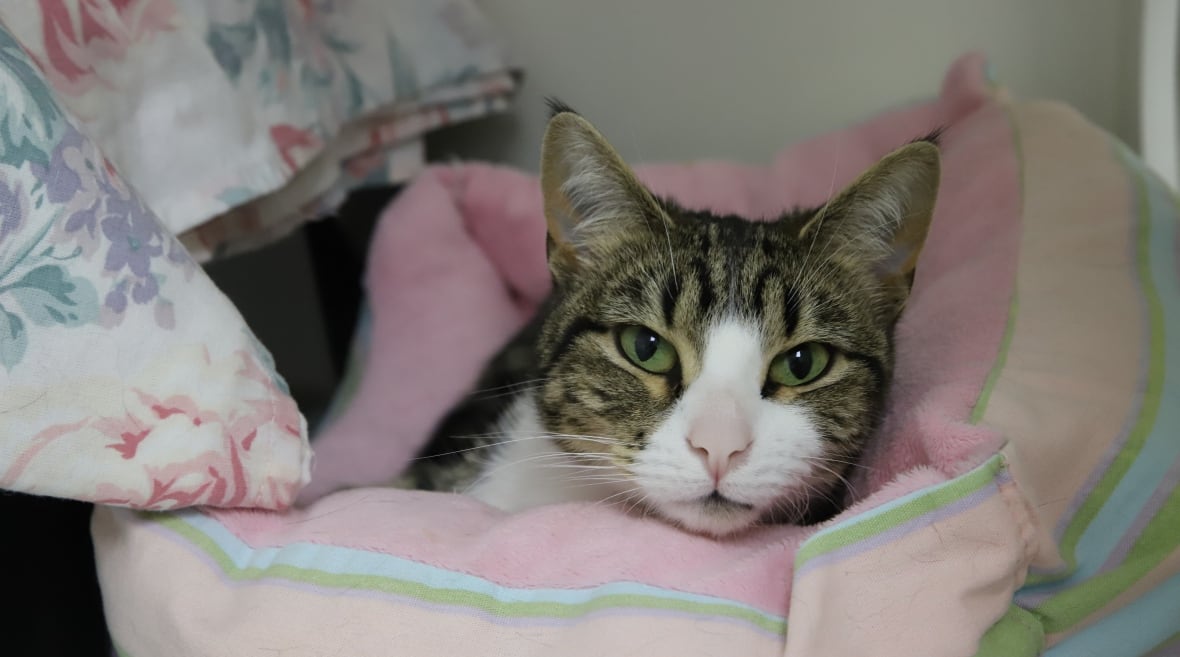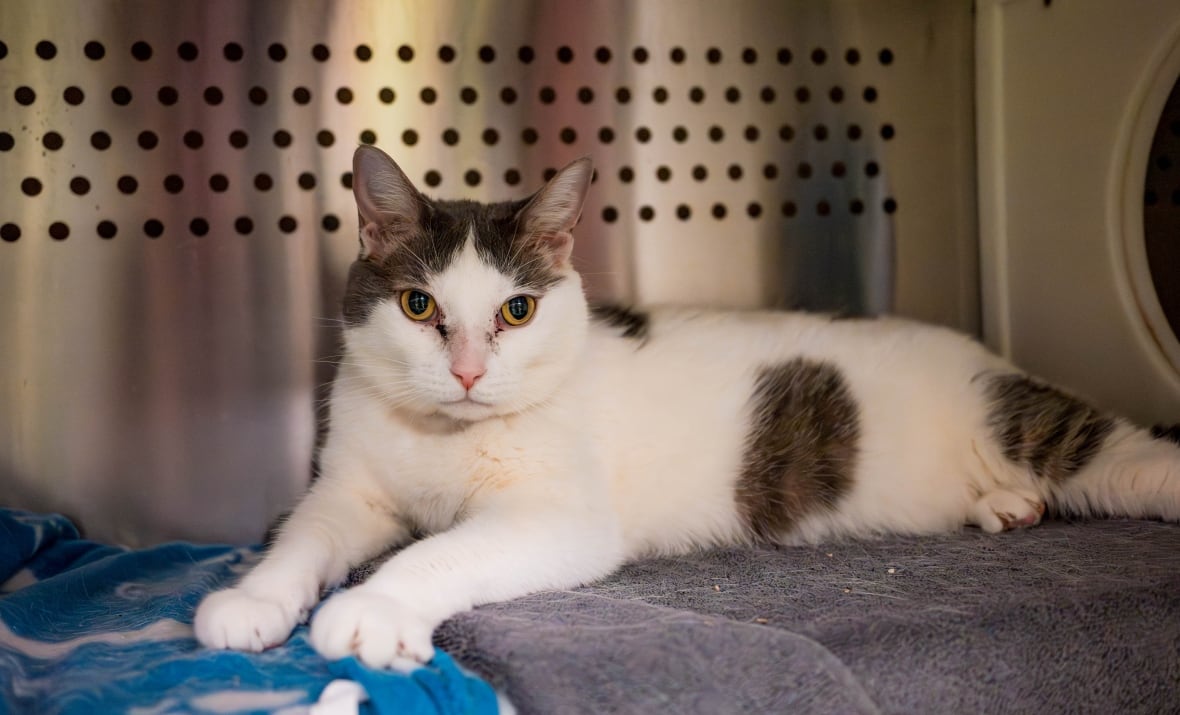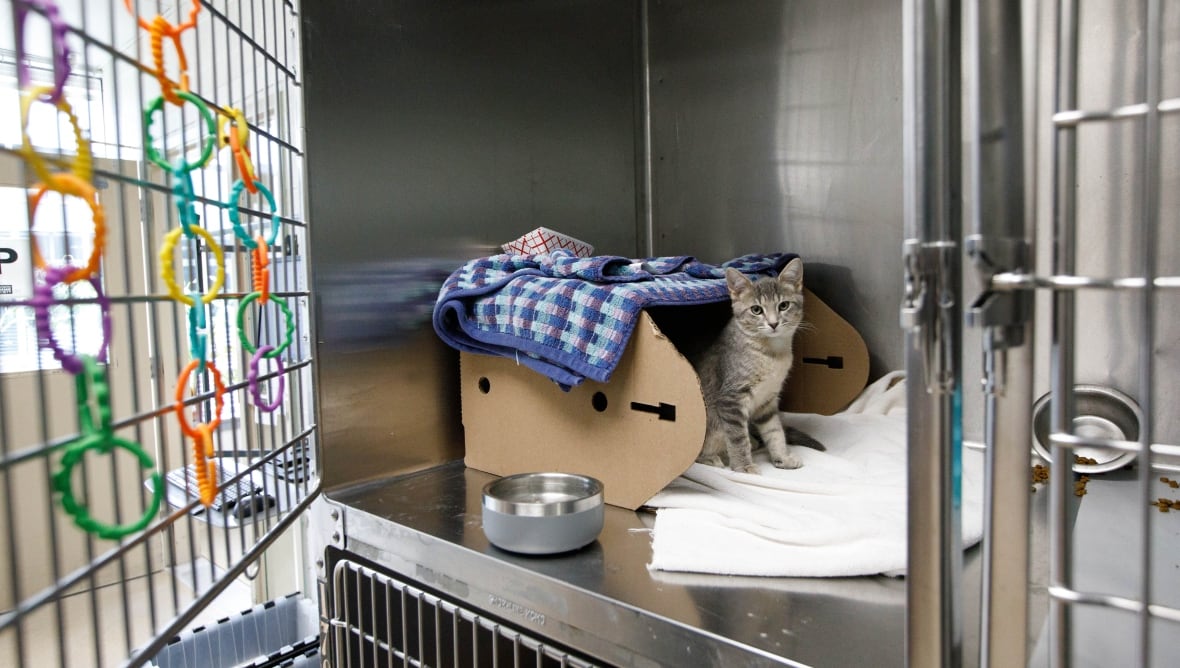Some shelters are seeing more pet surrenders. They say the cost of living is a huge factor
Rising cost of living forcing some owners to surrender their pets, humane societies say

A woman who can't afford her pets after her husband's death, despite working two jobs. A couple forced to downsize due to the financial strain of cancer. An owner who can't pay for the treatment for her cat's urinary condition.
These are just a handful of the stories that Calgary Humane Society heard last week from pet owners forced to give up their furry family members.
"People having to surrender due to cost of living and cost overall — it's been literally every single intake we've done this week," Sally Johnston, director of community services, told CBC News.
As costs creep up in Canada, some animal shelters and humane societies say they're seeing a worrying trend: More Canadians surrendering their pets because they simply can't afford them anymore. Others are seeing increased demand for their services like pet food banks.
CBC News reached out to organizations across Canada. More than half said that they're either seeing pet surrenders go up, or hearing more people cite the cost of living for why they're parting with their pet.
Calgary Humane Society has had around 200 pets waiting for intake at any given time over the last two years. Five years ago, it had no waitlist at all.

Last year, B.C. SPCA handled 906 pet surrender requests, but it's already seen 800 in the first half of this year alone. Ontario SPCA has seen a 16 per cent increase this year so far.
Cost-related factors accounted for 76 per cent of pet surrenders at Calgary Humane Society in 2024, and for 72 per cent of surrenders this year so far, Johnston said.
"When I look at our intake numbers, I really see that for the most part, people surrendering is not a choice. They're kind of forced to."
In June, Montreal SPCA put out a call for donations, which the organization relies on. It, too, saw more than 2,000 pet surrenders in the first six months of 2025, an increase of 32 per cent from the same period last year, said animal advocacy director Sophie Gaillard.

Between 2015 and 2020, surrenders were on a steady decline at Montreal SPCA, she said. But over the last few years, that trend has reversed: "This year, it's really a record increase in animal surrenders."
A perfect storm
Veterinary care, housing and the overall cost of living have been rising, staff at the affected shelters say, and there is also a shortage of veterinarians. All told, it's a "perfect storm" for an increase in pet surrenders, Gaillard said.
An investigation by CBC's Marketplace earlier this year found that the cost of veterinary care is being driven up across the country by corporations buying vet clinics and raising prices.
Finding and affording pet-friendly housing is one of the other big problems for owners right now, according to shelters and humane societies. Several told CBC News they tend to get an influx of surrenders right before the end of the month, as people prepare to move into a new place that won't accept their pet.
That struggle also disproportionately affects low-income people, Gaillard said.
In Quebec, landlords were cleared to implement a record rental increase this year, exacerbating an existing housing crunch. Meanwhile, Montreal SPCA is pushing for Quebec to follow Ontario's example and ban no-pet clauses in rental agreements.

"These are really gut-wrenching scenes for us to witness ... on a daily basis, people who arrive at the SPCA in tears, in distress," Gaillard said. "They are forced to surrender a family member, essentially, just to be able to put a roof over their heads. It's really an inhumane decision that we should not be forcing people into."
For its part, the Toronto Humane Society said it hasn't seen a notable increase in surrenders. But it said more pet owners are accessing its pet food bank and attending community days to receive donated pet toys and items.
From March to the end of December in 2024, the non-profit gave out just under 5,300 bags of pet food, but it's already dispensed about 5,600 bags in just the first six months of 2025.

"We're keeping track of how many people are coming in requesting food," said Lauralee Dorst, director of community animal welfare. "And it's usually because they can't afford ... the rising cost [of] food in regular pet stores."
Troubling trend, staff say
Pet surrenders aren't a new phenomenon, but Johnston says it's troubling to see more people having to consider parting with beloved pets because of financial burdens.

She urged pet owners to reach out to their local humane societies before they reach a breaking point, as many shelters have supports such as programs for seniors, pet retention programs or discounted veterinary care.
"The sooner that we engage with these folks and come up with these solutions before they even have to consider surrender, the more likely we are to prevent it all together."